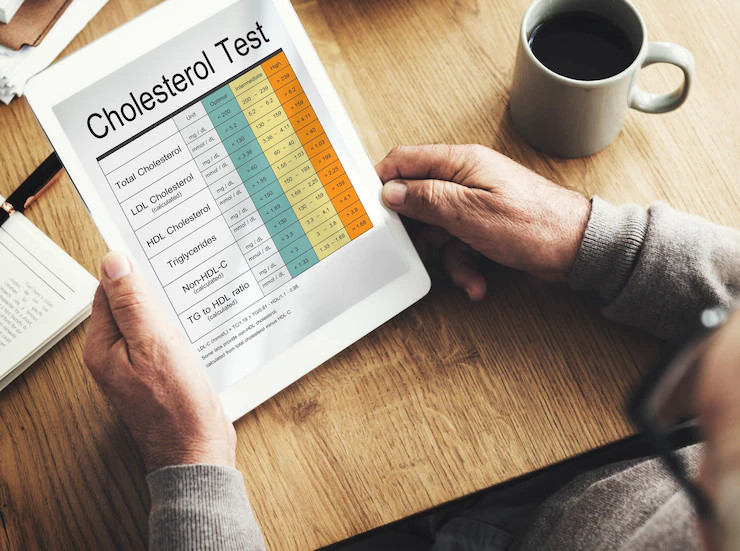Minum pil KB merupakan salah satu cara aman dan efektif untuk mencegah kehamilan. Namun pada beberapa orang, minum pil KB dapat menimbulkan efek samping seperti sakit kepala, penambahan berat badan, dan mual. Lantas, benarkah minum pil KB dapat meningkatkan risiko stroke?
Hubungan Antara Pil KB dan Stroke
Pil KB adalah alat kontrasepsi hormonal yang digunakan untuk mencegah kehamilan. Ada dua jenis pil KB yaitu pil KB kombinasi dan pil KB khusus progestin. Pil KB bekerja dengan meregulasi hormon yang dapat menghambat proses pembuahan dan implantasi janin pada rahim, juga mengentalkan lendir serviks sehingga sperma sulit mencapai sel telur.
Penggunaan pil KB tidak bisa sembarangan, harus dengan resep dokter dan perlu disesuaikan dengan kondisi kesehatan ibu. Meskipun aman digunakan, namun jika penggunaan pil KB menimbulkan efek samping yang berbahaya, maka sebaiknya konsultasikan ke dokter untuk penggantian alat kontrasepsi.
Dilansir dari Healthline, penggunaan pil KB dapat meningkatkan risiko stroke. Pil KB yang mengandung estrogen meningkatkan risiko stroke lebih besar daripada pilihan kontrasepsi yang hanya mengandung progestin.
Sebuah penelitian mengungkapkan bahwa pengguna pil KB memiliki risiko lebih tinggi mengalami infark miokard dan stroke iskemik daripada wanita yang tidak menggunakan alat kontrasepsi oral. Risiko ini paling tinggi ditemukan pada wanita yang mengonsumsi pil KB hormonal dengan kadar estrogen tinggi, juga pada wanita yang memiliki riwayat migrain. Lamanya Anda mengonsumsi pil KB tersebut juga meningkatkan risiko stroke.
Baca Juga: Mitos Seputar Pil KB yang Perlu Anda Ketahui
Para ahli mengungkapkan bahwa stroke pada pengguna pil KB juga dipengaruhi oleh faktor lainnya seperti:
- Usia
- Jenis kelamin
- Faktor genetik
- Riwayat keluarga terkena stroke
- Paparan polusi udara
- Masalah kesehatan lainnya seperti:
- Gangguan kecemasan
- Depres
- Diabetes
- Hipertensi
- Kolesterol tinggi
- Penyakit kardiovaskular lainnya
Untuk mengurangi risiko terjadinya stroke pada pengguna pil KB, dokter dapat merekomendasikan pil KB yang memiliki kadar estrogen lebih rendah atau metode kontrasepsi lainnya. Saat ini telah tersedia pil KB yang mengandung estrogen lebih rendah dan minim risiko terjadinya stroke.
Selain mengganti alat kontrasepsi, risiko stroke juga dapat dicegah melalui perubahan gaya hidup seperti:
- Meningkatkan aktivitas fisik
- Menjaga berat badan tetap stabil
- Makan makanan sehat dengan gizi seimbang
- Berhenti merokok
- Rutin melakukan pemeriksaan kesehatan, terutama jika Anda memiliki tekanan darah tinggi dan kolesterol tinggi
Baca Juga: Hal-Hal yang Memengaruhi Efektivitas Pil KB
Golongan yang Tidak Dianjurkan Minum Pil KB
Meskipun pil KB merupakan alat kontrasepsi yang aman, namun beberapa wanita dengan kondisi medis tertentu tidak dianjurkan minum pil KB. Beberapa kelompok yang tidak dianjurkan minum pil KB antara lain:
- Memiliki riwayat pembekuan darah atau peradangan pembuluh darah
- Memiliki atau berisiko kanker payudara dan kanker serviks
- Memiliki riwayat serangan jantung, stroke, atau masalah jantung lainnya
- Memiliki tekanan darah tinggi dan kadar gula darah yang tidak terkontrol
- Menderita migrain
Oleh karena itu, sebelum mengonsumsi pil KB sebaiknya konsultasikan ke dokter mengenai alat kontrasepsi yang paling sesuai dengan kondisi kesehatan dan kebutuhan Anda.
Jika memilik pertanyaan seputar kehamilan atau alat kontrasepsi, Anda bisa berkonsultasi ke dokter atau manfaatkan fitur konsultasi yang tersedia pada aplikasi Ai Care. Yuk, unduh aplikasi Ai Care sekarang juga melalui AppStore atau PlayStore!
Mau tahu informasi seputar penyakit lainnya? Cek di sini, ya!
- dr Nadia Opmalina
Kessel, H. (2023). Can Hormonal Birth Control Cause Stroke?. Available from: https://www.healthline.com/health/can-birth-control-cause-stroke
Sissons, B. (2024). Can birth control increase the risk of stroke?. Available from: https://www.medicalnewstoday.com/articles/birth-control-and-stroke#types
Benisek, A., Birth Control Pills. (2024). Available from: https://www.webmd.com/sex/birth-control/birth-control-pills
Watson, S. (2023). Birth Control When You Have Medical Conditions: What's Safe?. Available from: https://www.webmd.com/sex/birth-control/birth-control-medical-conditions
Planned Parenthood. How Safe is the Birth Control Pill?. Available from: https://www.plannedparenthood.org/learn/birth-control/birth-control-pill/how-safe-is-the-birth-control-pill#
American Migraine Foundation. (2023). Does Birth Control Increase Stroke Risk in Women with Migraine?. Available from: https://americanmigrainefoundation.org/resource-library/birth-control-and-stroke-risk/
Johansson, T., Fowler, P., Ek, W. E., Skalkidou, A., Karlsson, T., & Johansson, Å. (2022). Oral contraceptives, hormone replacement therapy, and stroke risk. Stroke, 53(10), 3107–3115. https://doi.org/10.1161/strokeaha.121.038659












